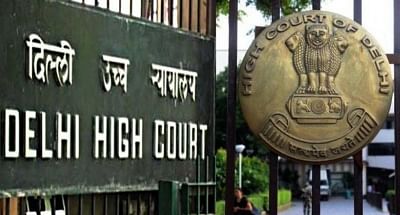'For Transparency & Inclusivity': Delhi HC Notifies Rules For Live Streaming
What do these rules say? And can all proceedings be live streamed? We answer.
'For Transparency & Inclusivity': Delhi HC Notifies Rules For Live Streaming
(Photo: PTI)

The Delhi High Court has notified rules for live streaming of court proceedings for “imbuing greater transparency, inclusivity and foster access to justice.”
The 'Steaming and Recording of Court Proceedings Rules of the High Court of Delhi, 2022', notified on 13 January, will be applicable to the High Court and to all the courts and tribunals over which it has supervisory jurisdiction.
How will it be livestreamed? Through “a live television link, webcast, audio-video transmissions via electronic means or other arrangements whereby any person can view the proceedings as permitted under the Rules.”
What it is for: Authorised recordings in their original form may be permitted to “disseminate news and for training, academic and educational purposes.”
What it is not for: Recording, sharing, disseminating, uploading, posting, modifying, publishing or re-publishing proceedings or archival data unless you are authorised.
"No person or entity, including print and electronic media and social media platforms, other than those authorised, shall record, share or disseminate live streamed proceedings or archival data," the rules say.
“Authorised recordings handed over for the aforesaid purposes shall not be further edited or processed. Such recordings will not be used for commercial, promotional purposes or advertising in any form. No person shall use a recording device for recording or for transcribing the proceedings, other than those authorised by the Court,” the rules add.
Violation and punishment: Violation of the provisions and unauthorised usage of live stream will be punishable as an offence under the Indian Copyright Act, 1957, Information Technology Act, 2000 and other provisions of law, including the law of contempt.
So ALL Proceedings?
All except:
Matrimonial cases
Child adoption or child custody cases
Sexual offences and cases involving gender-based violence against women
Cases under POCSO Act, Juvenile Justice Act and Medical Termination of Pregnancy Act
In-camera proceedings
Cases where the bench thinks that publication would be antithetical to administration of justice or will provoke enmity amongst communities likely to result in a breach of law and order
Recording of evidence
Privileged communications between parties and their advocates
Non-public discussions between advocates and any other matter in which a specific direction is issued by the bench or the Chief Justice
(With inputs from LiveLaw.)
(At The Quint, we are answerable only to our audience. Play an active role in shaping our journalism by becoming a member. Because the truth is worth it.)